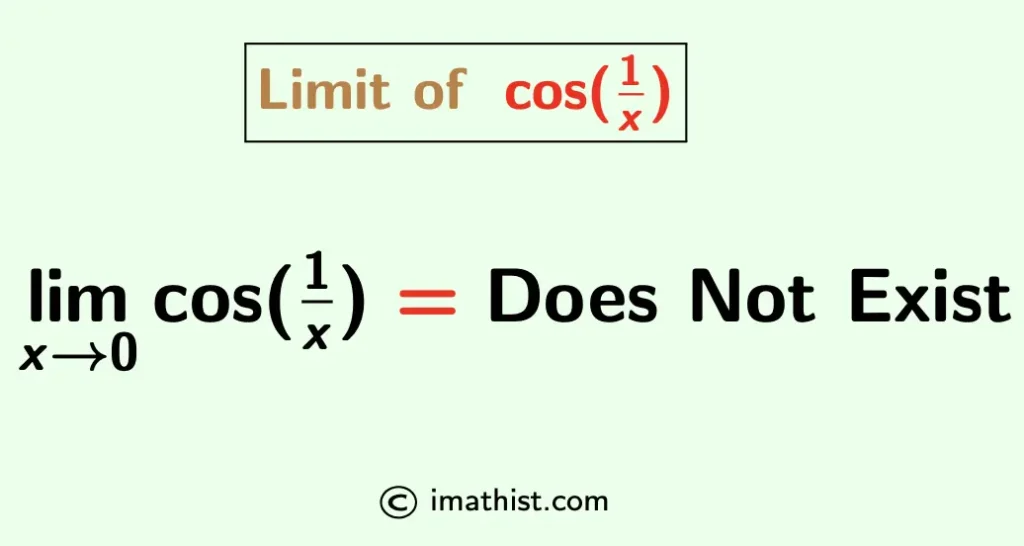The limit of cos(1/x) as x approaches 0 does not exist. In this post, we will learn how to find the limit of cos(1/x).

limx→0 cos(1/x) Does Not Exist.
Limit of cos(1/x) when x→0
Question: What is the limit cos(1/x) when x tend to 0?
Answer: The limit of cos(1/x) does not exist when x tends to 0.
Explanation:
The following theorem will be used to find the limit of cos(1/x) when x tends to 0.
| Theorem: If limx→c f(x) = L, then for every sequence xn→c we always have limn→∞ f(xn) = L. |
Let
xn = $\dfrac{1}{2n \pi}$
yn = $\dfrac{1}{(2n+1) \pi}$.
Note that when n tends to ∞, the above two sequences
xn, yn →0.
But,
limn→∞ f(xn) = limn→∞ cos 2nπ = 1.
limn→∞ f(yn) = limn→∞ cos (2n+1)π = -1.
So by the above theorem, we conclude that the limit of cos(1/x) when x tends to 0 does not exist.
Also Read: Limit of sin(1/x) as x approaches 0
Limit of sinx/x when x→∞ | Limit of (cosx-1)/x when x→0
Limit of sin(x2)/x when x→0 | Limit of sin(√x)/x when x→0
Limit of log(1+x)/x when x→0 | Limit of (ex-1)/x when x→0
Limit of (1+$\frac{1}{n})n when n→∞
FAQs
Q1: What is the limit of cos(1/x) as x tends to 0?
Answer: The limit of cos(1/x) as x tends to 0 does not exit, that is, limx→0 cos(1/x) = Not Exist.